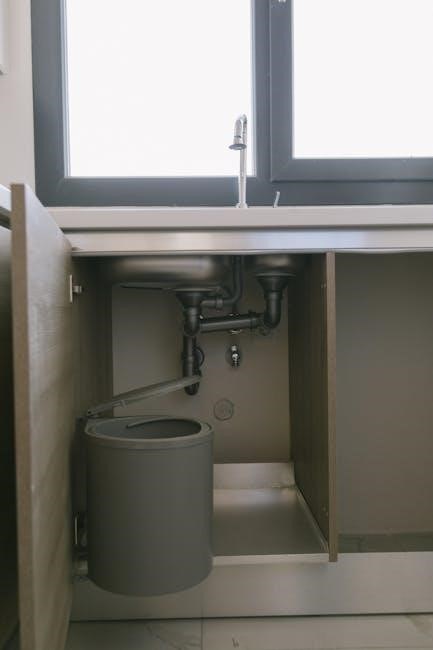A public storage rental agreement is a legally binding contract between a storage facility owner and renter, outlining terms, conditions, and responsibilities.
1.1 Definition and Purpose
A public storage rental agreement is a written contract defining the legal relationship between a storage facility owner (landlord) and the renter (tenant). Its purpose is to outline lease terms, payment details, and facility rules, ensuring clarity and mutual understanding. It protects both parties by specifying rights, responsibilities, and expectations, providing a clear framework for the rental arrangement. Security deposits and insurance requirements are also addressed.
1.2 Importance of a Written Agreement
A written public storage rental agreement is essential for establishing a clear, legally binding relationship between the landlord and tenant. It protects both parties by outlining lease terms, payment details, and facility rules, preventing disputes. The agreement ensures mutual understanding of responsibilities, rights, and expectations, providing a formal record of the rental arrangement and its conditions.
Key Parties Involved
The public storage rental agreement involves two primary parties: the landlord, who owns the storage facility, and the tenant, who rents the unit for storing belongings legally.
2.1 Landlord (Storage Facility Owner)
The landlord, or storage facility owner, is responsible for providing a secure storage unit and ensuring compliance with the lease terms. They manage access, maintain the property, and enforce rules to protect both the tenant’s belongings and the facility. The landlord also handles payments, security deposits, and any legal matters arising from the agreement.
2.2 Tenant (Renter of Storage Unit)
The tenant, or renter, is the individual or entity renting the storage unit. They are responsible for paying rent, adhering to facility rules, and storing only permitted items. Tenants must maintain the unit’s condition, ensure compliance with safety regulations, and notify the landlord of any issues. They also have access rights as outlined in the rental agreement.

Rental Term and Duration
The rental term specifies the duration of the agreement, typically month-to-month or fixed-term, with details on renewal and termination clauses outlined in the document.
3.1 Lease Duration
The lease duration specifies the length of the rental period, typically offered as month-to-month or fixed-term agreements. Fixed-term leases outline exact start and end dates, while month-to-month leases renew automatically until terminated by either party. The agreement details the terms for lease extensions or conversions to different rental periods, ensuring clarity for both the tenant and landlord.
3.2 Renewal and Termination Clauses
Rental agreements often include renewal and termination clauses, outlining procedures for extending or ending the lease. Automatic renewals require written notice to opt out, while fixed-term leases may require mutual agreement for renewal. Termination clauses specify conditions under which either party can end the agreement, typically requiring a 30-day written notice. Failure to comply may result in penalties or fees.
Rent and Payment Terms
The agreement outlines the monthly rental rate, payment methods, due dates, and late fees, ensuring clarity on financial obligations for both parties involved in the rental.
4.1 Monthly Rental Rate
The monthly rental rate is specified in the agreement, detailing the fixed amount due for the storage unit. Rates may vary based on unit size, location, and amenities. Payment is typically due on the same date each month, with late fees applied if not received by the specified due date. This ensures consistent and clear financial terms.
4.2 Payment Methods and Due Dates
Payment methods include online payments, checks, or money orders. The due date is typically the 1st of each month, with a grace period of 5 days. Late fees apply if payment is not received by the due date. Tenants are encouraged to check the agreement for accepted payment methods and late fee structures to avoid penalties and ensure timely payments.
4.3 Late Payment Fees and Penalties
Late payments incur a fee, typically $20-$50, applied after the grace period. Repeated late payments may lead to unit denial or termination of the agreement. Penalties escalate if payments remain unpaid, potentially resulting in unit auctions to recover owed rents. Tenants must review the agreement for specific late fee structures to avoid additional charges and ensure compliance with payment terms.

Security Deposit
A security deposit is a refundable amount held to ensure proper maintenance of the storage unit. It is returned after the agreement ends, minus any deductions for damages or unpaid rent.
5.1 Amount and Payment
The security deposit amount varies based on the storage unit size and location. It is typically due upon signing the agreement and can be paid via credit card, check, or cash. The deposit is refundable, provided the unit is left in good condition. The agreement outlines the payment terms, ensuring clarity for both parties.
5.2 Refund and Deductions
The security deposit is refunded within 30 days after the tenant vacates the unit. Deductions are made for unpaid rent, cleaning costs, or damages. The tenant must leave the unit in good condition to ensure a full refund. Any damages or unpaid fees will be detailed in the refund statement provided to the tenant.
Tenant Responsibilities
Tenants must maintain the storage unit, adhere to facility rules, and ensure secure access. They are responsible for their belongings and must notify the landlord of any issues promptly.
6.1 Payment Obligations
Tenants are required to pay rent on or before the due date, as specified in the agreement. Payments must be made using accepted methods, and late payments may incur fees. Failure to pay rent or other charges can lead to enforcement actions, including denial of access or termination of the agreement. Timely payment ensures uninterrupted use of the storage unit.
6.2 Maintenance of the Storage Unit
Tenants are responsible for maintaining the cleanliness and organization of their storage unit. They must ensure the unit is properly locked and secured at all times. Tenants should refrain from storing prohibited items and comply with facility rules to prevent damage or pests. Regular inspections by tenants are recommended to ensure the unit remains in good condition and secure.
6.3 Compliance with Facility Rules
Tenants must adhere to all facility rules and regulations, including access hours, prohibited items, and security protocols. They are expected to maintain a clean environment and refrain from hazardous activities. Compliance ensures the safety and security of the facility, protecting both the tenant’s property and others. Failure to comply may result in penalties or termination of the agreement.
Use of Storage Unit
The storage unit is for storing personal or business items, excluding hazardous materials, flammable substances, or perishables. The tenant must use the space solely for its intended purpose.
7.1 Permitted Items for Storage
Permitted items include personal belongings, furniture, boxes, and business equipment. Tenants may store non-perishable goods, seasonal decorations, and household items. However, hazardous materials, flammable substances, or illegal items are strictly prohibited. The agreement specifies allowable contents to ensure safety and compliance with local regulations.
7.2 Prohibited Items
Prohibited items include hazardous materials, flammable substances, illegal goods, perishable foods, livestock, and weapons. Storing such items violates the agreement and may lead to termination. Tenants are also barred from keeping items that pose health or safety risks. The facility reserves the right to confiscate or remove prohibited items and may hold tenants liable for damages caused by non-compliance.

Access Rights and Restrictions
The agreement outlines access hours, entry conditions, and restrictions to ensure secure storage unit access while maintaining facility safety and security standards.
8.1 Access Hours
Access hours specify the times during which tenants can enter the facility to access their storage units. These hours are typically outlined in the agreement and may vary by location. Some facilities offer extended or 24/7 access, while others have limited hours for security reasons. Tenants are expected to adhere to these hours unless otherwise agreed upon in writing. Security measures may restrict access outside designated times to ensure facility safety and protect stored belongings. Tenants are often required to use access codes or keys during authorized hours, and any violations may result in penalties or denial of entry. The agreement may also specify procedures for accessing the unit outside regular hours, such as advance notice or additional fees. It is important for tenants to review and understand the access hours to avoid inconvenience or potential disputes. Facilities may also provide gate access systems or biometric authentication to monitor and control entry during permitted hours.
8.2 Restrictions on Access
Access restrictions may include requirements for proper identification, authorized guest access, and prohibitions on living in the unit or storing hazardous materials. Facilities may limit entry to registered tenants and their approved representatives. Unauthorized access, such as allowing unregistered individuals to use the unit, may result in denial of entry or termination of the agreement. Some agreements also prohibit certain activities, like conducting business or storing prohibited items, to maintain safety and compliance with local regulations. Violating these restrictions can lead to penalties or legal action, ensuring the facility remains secure and operational for all tenants. Additionally, facilities may enforce specific rules about vehicle types or sizes allowed on the premises during access hours. Tenants are expected to adhere to these restrictions to maintain their rental privileges and avoid conflicts with the storage provider.
Insurance and Liability
Insurance requirements ensure stored items are covered against damage or loss. Facilities typically aren’t liable for damages unless caused by their negligence, as outlined in the agreement.
9.1 Insurance Requirements
Tenants are typically required to maintain insurance coverage for stored items. Facilities may offer optional insurance or require proof of existing coverage. This ensures protection against loss, damage, or theft, with policies varying by provider and agreement terms. Tenants must disclose insurance details to comply with the rental agreement’s conditions, ensuring both parties are safeguarded financially.
9;2 Liability for Damages
Tenants are generally liable for damages to the storage unit or facility unless caused by the landlord’s negligence. The storage facility is not typically liable for damage to stored items unless proven negligent. Tenants may be held responsible for repairs or penalties if they cause damage. Damages impacting the unit’s condition may result in deductions from the security deposit or termination of the agreement.

Default and Enforcement
Default occurs if tenants fail to meet agreement terms. Enforcement may include denying access, auctioning stored items, or terminating the lease to recover losses.
10.1 Consequences of Default
Failure to meet agreement terms, such as unpaid rent, may result in denied access, unit lockdown, or removal of items. The facility may sell stored goods via auction to recover debts, with proceeds applied to unpaid rent and fees. Any surplus is returned to the tenant after satisfying all claims.
10.2 Enforcement of Agreement Terms
The storage facility may enforce terms through legal action, including unit lockdowns or auctions to recover unpaid rent. Tenants must comply with all clauses, and any breaches may result in penalties or termination. Both parties must agree to any amendments, ensuring mutual consent and adherence to the agreed terms throughout the rental period.
Termination of Agreement
Termination occurs due to default, with a required notice period. Tenant must vacate and remove all items upon termination.
11.1 Notice Period
The tenant must provide written notice within a specified timeframe, typically 30 days, before vacating the unit. Failure to do so may result in additional fees or penalties.
11.2 Return of Property
The tenant must remove all personal property from the storage unit by the lease end date. The unit must be left clean and in good condition. Any remaining items may be considered abandoned, allowing the facility to sell or dispose of them after providing notice. The tenant remains liable for any costs incurred during this process.
Amendments to the Agreement
Amendments to the agreement must be mutually agreed upon in writing. Changes are only effective when signed by both the tenant and the storage facility owner.
12.1 Process for Making Changes
Changes to the agreement must be proposed in writing by either party. Both the tenant and landlord must consent to amendments, which are only effective once signed. Any modifications should be clearly outlined and attached to the original agreement to ensure clarity and mutual understanding.
12.2 Mutual Agreement Required
All amendments to the agreement require mutual consent and written approval from both the tenant and landlord. No changes are enforceable unless both parties sign the revised document, ensuring both sides agree to the updated terms. This ensures fairness and prevents unilateral alterations to the original agreement.
The conclusion summarizes the agreement, ensuring both parties agree to the terms and conditions. It outlines the final steps, including signatures and the effective date, completing the contract.
13.1 Final Terms and Signatures
The final terms and signatures section ensures both parties acknowledge and agree to the outlined conditions. It includes the landlord’s and tenant’s signatures, confirming mutual understanding and acceptance of the agreement’s terms, making it legally binding once executed.
13.2 Effective Date of Agreement
The effective date of the agreement marks when the terms become legally binding. It is typically the date the agreement is signed by both parties, unless otherwise specified. This date signifies the start of the rental term and ensures both parties comply with the outlined terms and conditions from that point forward.



